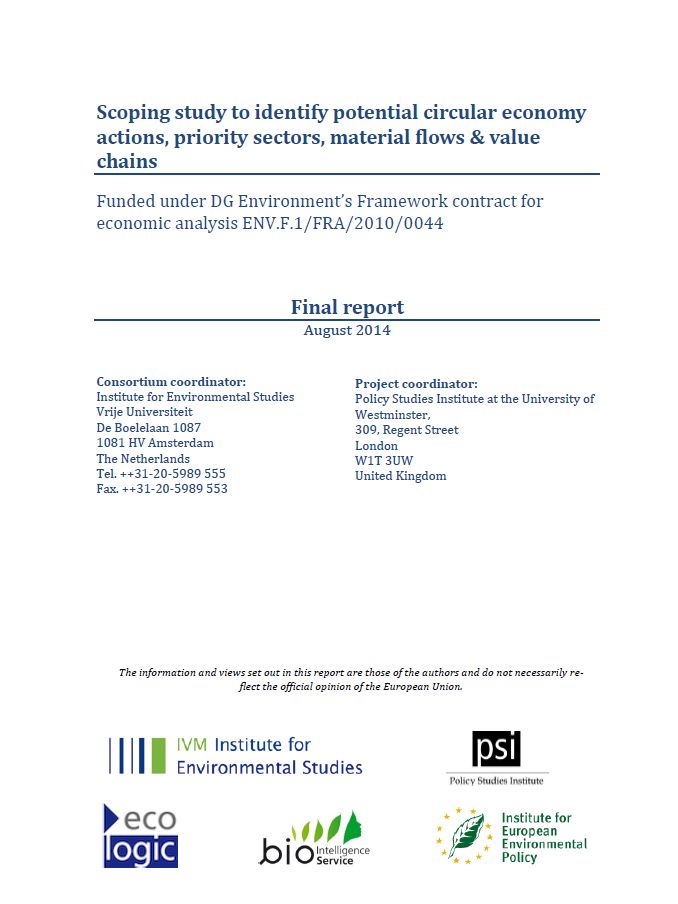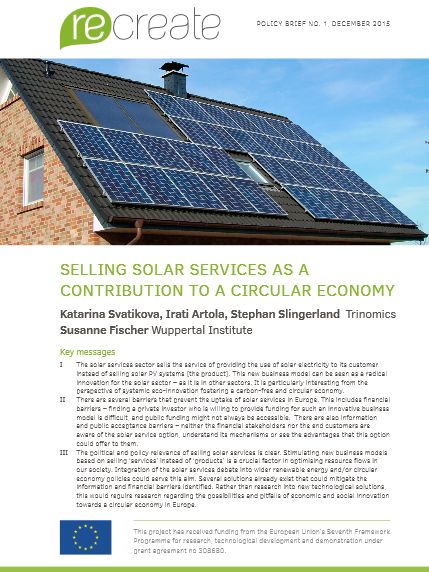The circular economy is rapidly rising up political and business agendas. In contrast to today’s largely linear, 'take-make-use-dispose' economy, a circular economy represents a development strategy that enables economic growth while aiming to optimise the chain of consumption of biological and technical materials. A deep transformation of production chains and consumption patterns is envisaged to keep materials circulating in the economy for longer, re-designing industrial systems and encouraging cascading use of materials and waste. Although there are some elements of circularity such as recycling and composting in the linear economy where progress needs to be maintained, a circular economy goes beyond the pursuit of waste prevention and waste reduction to inspire technological, organisational and social innovation across and within value chains. There are already several policies in place and activities underway that support a circular economy; however there remain a range of untapped opportunities, costs to be avoided and obstacles to be addressed in order to accelerate the move towards a circular economy in the EU.
Against this backdrop, the European Commission (DG Environment) launched a "Scoping study to identify potential circular economy actions, priority sectors, material flows & value chains". The study was carried out by the Policy Studies Institute (PSI), Institute for European Environmental Policy (IEEP), BIO and Ecologic Institute between November 2013 and July 2014.
The aim of the study was to provide an initial scoping assessment of potential priorities and policy options to support the transition to a circular economy in the EU. The study reviewed existing literature, identified potential priority areas for action where accelerating the circular economy would be beneficial and where EU policy has a particular role to play, and developed policy options for consideration across a range of areas.
The study is available for download.





